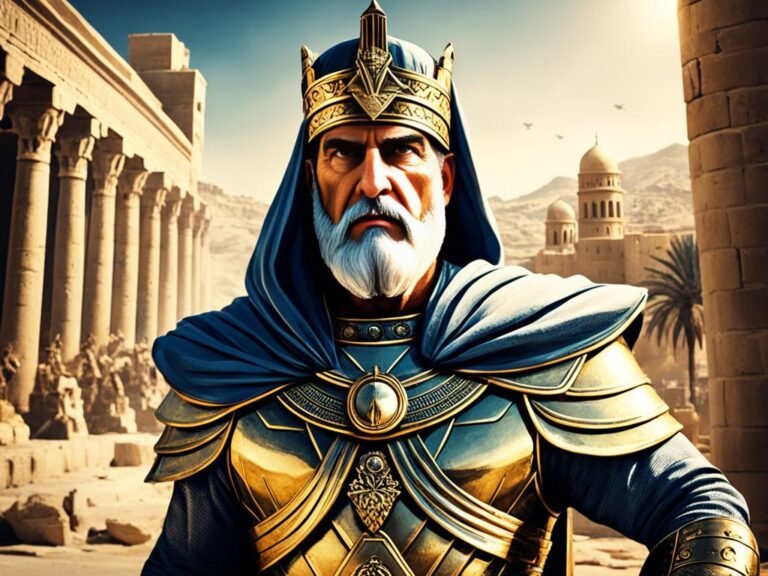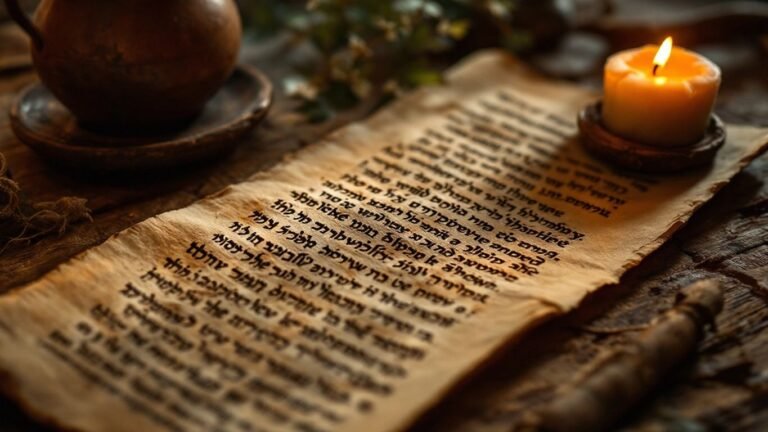Who was Hosea in the Bible?

Who was Hosea in the Bible? What is the impact of having a prophet in the family? The story of Hosea, told in Old Testamentprovides a unique and dramatic insight into the family life of a prophet.
With a difficult mission entrusted directly and explicitly by God, Hosea's family became a living symbol of the relationship between God and Hosea. Israel.
This context puts Hosea's family life in the spotlight, not just as a passive backdrop, but as an integral part of the message he was called to convey.
Hosea's family, made up of his wife Gomer and their three sons, plays a central role in the biblical narrative.
Through the names and experiences of his sons, Hosea conveys a direct message of warning and hope to the people of Israel.
Each of the sons' names - Jezreel, Lo-Ruama and Lo-Ami - has a prophetic meaning that refers to Israel's future.
This dynamic transforms the family structure into a powerful metaphor used by God to illustrate Israel's unfaithfulness and the promise of redemption.
Hosea gives the family an essential role in his prophetic message of commitment and restoration.
The relationship between him and his wife, together with his experiences with his children, deeply reflects God's commitment to seeking and redeeming his people, despite their failings and deviations.
Thus, Hosea's family exemplifies what it can take to sacrifice in order to fulfill a divine purpose, becoming an enduring example of how personal and professional life can be inseparably intertwined in a religious vocation.
Hosea's message
Hosea's message is one of the most touching and moving prophecies It's not just made up of words, but has been lived through his personal and family experiences, which makes it even more emphatic.
O Book of Hosea in the Old Testament is a direct indictment of Israel's unfaithfulness, but it is also an urgent call to the regret and the promise of divine restoration.
| Element | Meaning | Impact |
|---|---|---|
| Hosea's wedding | Symbolism of the broken alliance | A portrait of Israel's infidelity |
| Sons of Hosea | Prophetic Names | Warnings and hope for Israel |
| Prophecy | Judgment and Redemption | A call to repentance |
| Divine Love | God's faithfulness | Promise of restoration |
Hosea's prophecy begins with God instructing him to marry Gomer, a woman who would personify Israel's unfaithfulness.
This prophetic act is not only a reflection of the volatile relationship between God and Israel, but also serves as a tangible representation of God's unconditional and constant love, despite the unfaithfulness of his people.
Hosea would be called to love a wife who would continually stray, mirroring the relationship between the Lord and the nation of Israel.
The impact of Hosea's message does not stop at condemnation. In the midst of judgment and warning, there is a thread of hope and promise of renewal.
God's presence of eternal love and faithfulness remains constant as he seeks to reconcile with his transgressing children.
Thus, Hosea's prophetic message transcends time, inviting everyone to reflect about the essence of divine love and the transformation that repentance can bring.
The story of Hosea
The story of Hosea is a narrative rich in symbolism, shedding light on the uncompromising nature of God's love and the continual struggle of human beings against their own inclinations to turn away from him.
Hosea, a minor prophet in the context of the Hebrew scriptures, lived and prophesied during a critical period in Israel's history, before the destruction of the Northern Kingdom.
"I bought it for myself, for fifteen pieces of silver and an omer and a half of barley." - Hosea 3:2.
Hosea was called to deliver a message full of contradictions between Israel's continued unfaithfulness and the yet powerful obligation of God's love for his people.
He personally experienced the painful and redemptive dimensions of this message. God's command for Hosea to marry Gomer and form a family that would serve as a living symbol was undoubtedly a difficult mission.
The unconditional love that Hosea showed towards a wife who would repeatedly betray him powerfully reflected God's love for Israel.
Hosea's journey was not just limited to his marriage relationship. His children, whose names carried prophetic meanings, also played key roles in the delivery of his message.
The story of Hosea, therefore, is a powerful biblical metaphor that illuminates the nature of the relationship between God and humanity - a relationship where human fallibility is forgiven by infinite divine mercy, always bringing the possibility of a new beginning.
The prophet Hosea's wife and children
Hosea's wife and children are a vital aspect of his message and prophetic mission.
Gomer, the woman God commanded Hosea to marry, is often described as a woman of dubious character, symbolizing Israel's betrayal and idolatry.
Hosea's relationship with her is both a personal experience and a metaphor for Israel's history of unfaithfulness to God.
Gomer gave birth to three sons, each symbolically appointed to convey a prophetic message to the people of Israel.
Jezreel, the firstborn, whose name means "God scatters", foreshadows the fate of the people of Israel being scattered because of their disobedience.
The daughter, Lo-Ruama, whose name means "unloved", indicates the temporary withdrawal of God's affection for Israel.
Finally, Lo-Ami, whose name means "not my people", highlights the breaking of the covenant between God and Israel.
Hosea's obedience in naming his children according to divine instructions and maintaining such a complicated marriage demonstrates his unwavering devotion to the mission God had entrusted to him.
It also illustrates the central theme of love, despite betrayal, and the promise that, even when abandoned, God's children can be restored through repentance and renewed faithfulness.

Did Hosea really marry a prostitute?
Uma das questões mais debatidas na teologia bíblica é se Oséias realmente se casou com uma prostituta ou se esta parte da narrativa é puramente simbólica.
Most traditional interpretations follow the literal reading of the text, where Gomer, Hosea's wife, is described as a woman of adultery, reinforcing the metaphor of Israel's relationship with false deities.
However, there is also an allegorical interpretation that sees Hosea's marriage to Gomer not as a literal action, but as a vision or allegory given to Hosea to express Israel's unfaithful nature.
In this view, the story serves to amplify the emotional impact of Hosea's prophetic message, without him actually having to go through this personal experience.
No matter how one interprets this aspect of Hosea's life, the message remains clear: God was using Hosea's personal life as a platform to convey a divine message of judgment and compassion.
Hosea and Gomer's relationship is a vivid portrayal of the loving and conflicting dynamic between God and Israel, underlining the uncompromising nature of divine love and the hope of redemption.
The message of the prophet Hosea
The prophet Hosea's message is vast, resonating with themes of love, recrimination, repentance and hope.
Through his personal experiences and his preaching, Hosea sought to awaken the people of Israel to their fallen spiritual condition and call them back to their special relationship with God.
1- Unconditional Love: Hosea's message begins and ends with the theme of God's unconditional love.
Even when Israel turned away, worshipping idols and breaking their covenant, God's love remained constant and forgiving.
2- Repentance: Central to Hosea's message is the call to repentance.
Hosea urges Israel to return to the Lord and abandon their idols. Repentance is not only desired, but essential in order to restore the relationship between God and his people.
3- Divine Justice: Hosea emphasizes that although God's love is eternal, he is also just.
Israel would face consequences for its unfaithfulness, but these consequences would serve as a catalyst for spiritual transformation and redemption.
Hosea calls on the people to look beyond their immediate circumstances to see God's eternal love at work.
Hosea's message resonated then, as it does now, as an urgent call to fidelity and an invitation to truly experience transformative divine love.

More Hosea in the Bible
Apart from the book that bears his name, references to Hosea are scarce in the Bible, but his impact and legacy are immeasurable within religious traditions.
Hosea is remembered not only for the content of his prophecy, but also for the model of life he demonstrated, fully embodying the word he preached.
Hosea lives at a critical intersection between the prophetic word and personal action. He represents an example of how a prophet's life and message are not just words, but a living embodiment of divine intentions.
Hosea's teachings have influenced other scriptures and continue to be a point of reference for religious and ethical studies.
His message transcends the simplicity of his time and penetrates universal themes, making Hosea's story relevant and applicable to modern life.
He encourages us to examine our own lives, challenges us to identify the parts of ourselves that have fallen away, and invites us, with renewed hope, to turn to a love that will never abandon us.
Conclusion
Hosea's journey, full of personal and spiritual challenges, leaves a legacy that continues to resonate throughout the centuries.
Through the powerful symbolism and vivid images present in Hosea's narrative, we are called to understand the depth of divine love and the perennial possibility of redemption.
The story of Hosea is more than an old-fashioned account; it is an eternal reminder of the covenant between God and humanity, of human frailty and the transforming power of love.
In revisiting her story, we reflect on our own sorrows and hopes, recognizing that, regardless of our situation, there is always a path to new beginnings and reconciliation.
FAQ - Common Questions
What does the name "Hosea" mean?
The name "Hosea" means "salvation" or "he saves", which is appropriate for a prophet whose central message revolved around returning to God and redemption.
Hosea was a prophet in which period?
Hosea prophesied during the period of the Northern Kingdom of Israel, probably in the 8th century BC, before the destruction of Samaria in 722 BC.
How many sons did Hosea have and what were their names?
Hosea had three sons with Gomer: Jezreel, Lo-Ruama and Lo-Ami. Each name had a profound prophetic meaning in relation to Israel's future.
Is Hosea one of the major or minor prophets?
Hosea is considered one of the minor prophets in the Bible, which refers to the size of its book, not the importance of its message.
What is the main message of the Book of Hosea?
Hosea's main message is the call for repentance by Israel, highlighting their unfaithfulness and God's constant love, culminating in the invitation to restoration.








